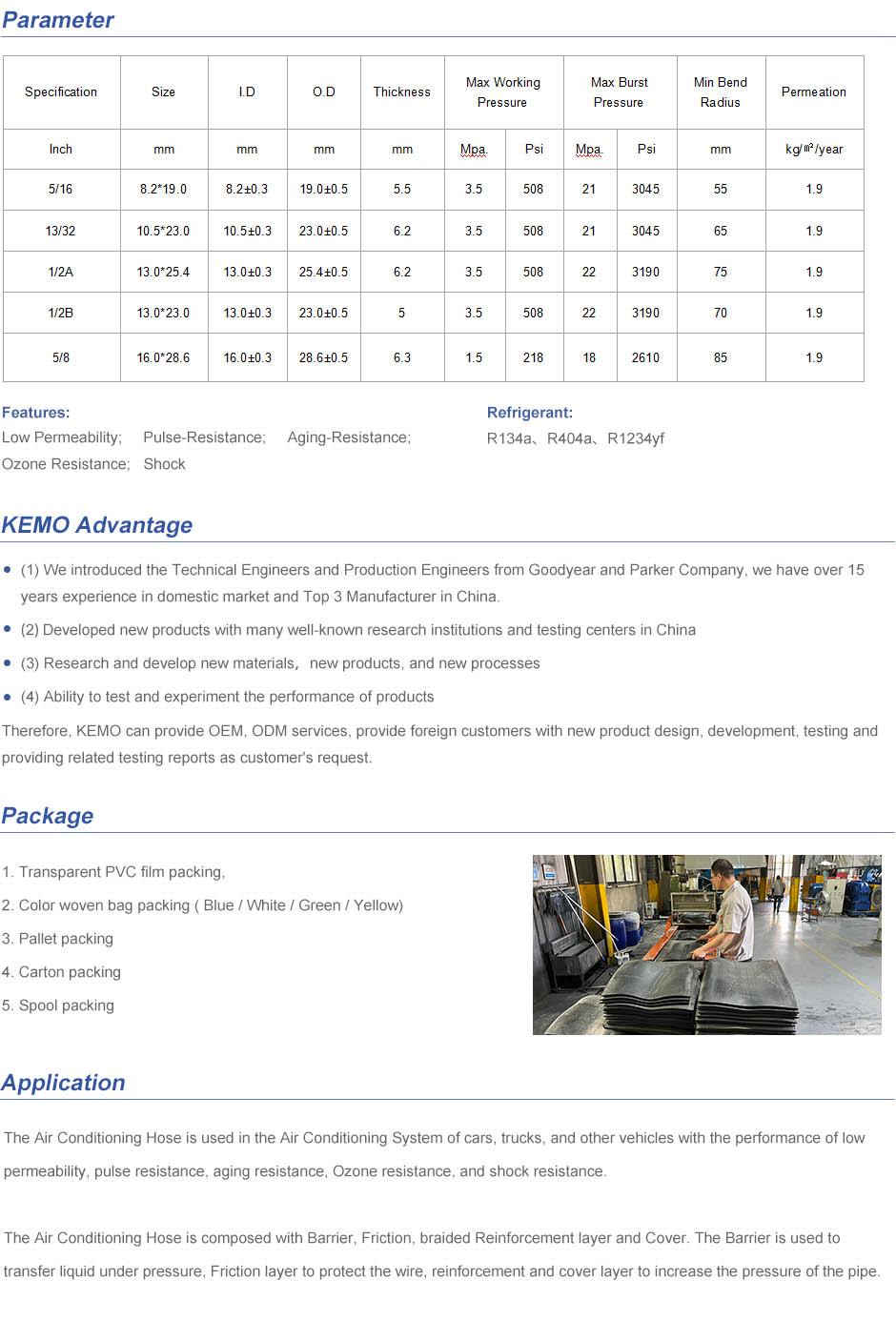e85 rubber fuel hose
Nov . 11, 2024 23:11 Back to list
e85 rubber fuel hose
Understanding E85 Rubber Fuel Hose A Comprehensive Guide
In the ever-evolving world of automotive fuel systems, the materials utilized in fuel hoses play a crucial role in maintaining performance and durability. One particular type that has gained attention is the E85 rubber fuel hose, specifically designed to accommodate the unique properties of E85 fuel. This article explores the significance, benefits, and considerations surrounding E85 rubber fuel hoses.
What is E85 Fuel?
E85 is a fuel blend consisting of 85% ethanol and 15% gasoline. It is primarily used in flexible fuel vehicles (FFVs) that are engineered to run on varying ethanol concentrations. The incorporation of ethanol not only helps reduce carbon emissions, but it also promotes energy independence by utilizing domestically produced biofuels. However, the corrosive nature of ethanol demands specialized materials for fuel delivery systems to ensure longevity and reliability.
Importance of Rubber Fuel Hoses
Traditionally, fuel hoses are made from materials such as rubber or plastic, which may not be equipped to handle high concentrations of ethanol. E85, being more corrosive than conventional gasoline, can degrade standard hoses, leading to fuel leaks and potential safety hazards. This is where E85 rubber fuel hoses come into play. Constructed from materials specifically designed to resist the corrosive effects of ethanol, these hoses are essential for maintaining the integrity and functionality of the fuel system in FFVs.
Features of E85 Rubber Fuel Hoses
1. Corrosion Resistance E85 rubber fuel hoses are engineered to withstand the corrosive properties of ethanol. They are typically made from specialized synthetic rubber compounds that provide superior resistance to swelling, cracking, and deterioration.
2. Temperature Tolerance These hoses are capable of operating within a wide temperature range, ensuring reliable performance under various environmental conditions. This is crucial for vehicles that may experience significant temperature fluctuations in different driving contexts.
3. Flexibility and Durability E85 rubber fuel hoses are built for flexibility, allowing for easy installation in tight spaces without kinking or collapsing. Their durability ensures a long service life, reducing the need for frequent replacements.
4. Compatibility with Fuel Systems Designed to match the specifications of modern fuel systems, E85 rubber hoses fit seamlessly with fuel injectors, pumps, and other components. This compatibility ensures efficient fuel delivery, vital for engine performance.
e85 rubber fuel hose

Benefits of Using E85 Rubber Fuel Hoses
1. Enhanced Safety Using E85-specific hoses minimizes the risk of leaks, which can lead to fire hazards and environmental harm. The reliability of E85 rubber fuel hoses contributes to overall vehicle safety.
2. Improved Engine Performance The consistent flow of fuel provided by quality hoses enhances engine performance, efficiency, and responsiveness, especially when using higher ethanol blends.
3. Environmental Considerations By supporting the use of E85 and other biofuels, these hoses contribute to reducing greenhouse gas emissions and promote sustainable energy practices.
4. Cost-Effective Solution Although E85 rubber fuel hoses may have a higher upfront cost compared to standard hoses, their durability and resistance to degradation mean lower long-term maintenance and replacement costs.
Considerations When Choosing E85 Rubber Fuel Hoses
When selecting an E85 rubber fuel hose, it is essential to consider the following
- Material Specifications Ensure the hose is explicitly rated for E85 applications, with appropriate certifications from recognized organizations. - Size and Fit Measure the required dimensions carefully to guarantee compatibility with existing fuel system components. - Manufacturer Reputation Opt for reputable manufacturers who provide detailed product information, warranty, and support.
Conclusion
E85 rubber fuel hoses are a critical component of modern fuel systems, designed to address the challenges posed by ethanol-blended fuels. By ensuring resistance to corrosion, enhancing performance, and contributing to a more sustainable future, these hoses play an indispensable role in the automotive industry. As the demand for biofuels continues to grow, understanding and investing in the right fuel hose technology becomes increasingly important for both manufacturers and vehicle owners alike.
